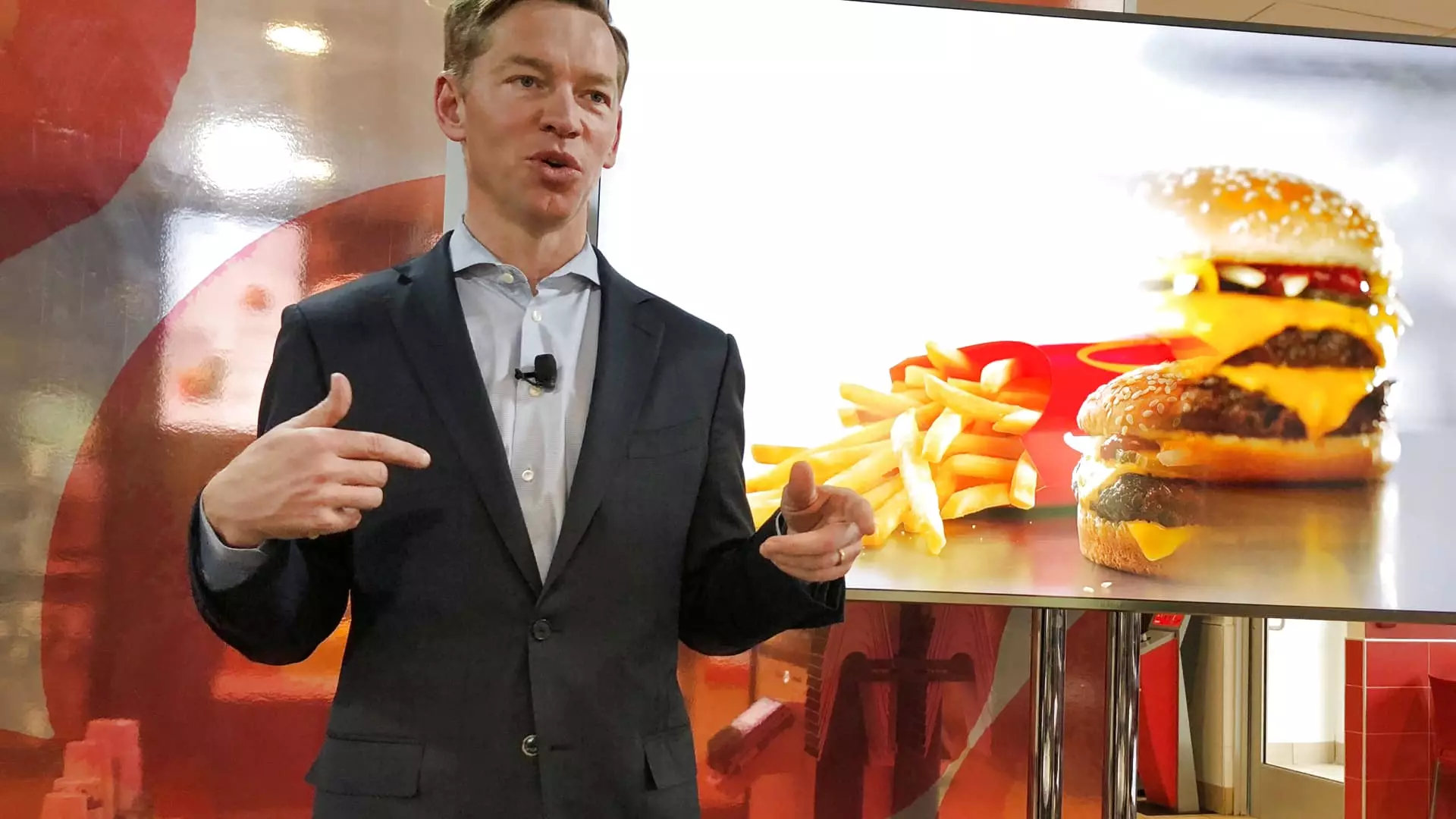In recent weeks, the fast-food giant McDonald’s faced a serious challenge, navigating through a public health crisis linked to its popular Quarter Pounder burgers. The outbreak, which health authorities attributed to E. coli contamination, put the company in a precarious position, raising questions about food safety and operational integrity. In a bid to reassure stakeholders, CEO Chris Kempczinski addressed investors, stating that the crisis was largely behind them and that they were focusing on recovery. However, the ramifications of such an outbreak extend beyond immediate sales losses; they fundamentally challenge corporate credibility and consumer trust.
Following the outbreak announcement, McDonald’s took decisive action by temporarily removing Quarter Pounder burgers from around 900 locations. This quick response was essential not only for public safety but also for demonstrating the company’s commitment to customer welfare. Transparency became crucial as health officials investigated the source of the contamination, which was believed to be slivered onions rather than the beef patties themselves, which were found to be uncontaminated. Nonetheless, the decision to halt sourcing from the implicated onion supplier reflects a responsible approach to crisis management, prioritizing customer health over profit margins.
The outbreak had immediate negative repercussions, with a reported decline in daily sales and foot traffic in U.S. locations. This downturn highlights the fragility of consumer confidence in the face of health scares. CFO Ian Borden noted that even though the company is not expecting a long-term material impact, the short-term distress among customers was evident, highlighting the uphill battle McDonald’s faced in restoring its reputation.
In the wake of the crisis, McDonald’s strategized to restore consumer confidence while regaining its earlier momentum in sales. The company’s focus on communication plays a vital role in this effort, with Kempczinski publicly apologizing to customers for the distress caused. Such transparency demonstrates an understanding of the emotional impact that health scares can have on consumers.
Moreover, McDonald’s shift in strategy—returning Quarter Pounder burgers without slivered onions—illustrates a proactive approach to ensuring safety while still aiming to meet customer expectations. Launching promotional items, like the $5 value meal and the Chicken Big Mac, is also part of McDonald’s plan to entice customers back through its doors, signaling a commitment to both affordability and quality.
Despite the circumstances surrounding the outbreak, McDonald’s reported a modest increase in same-store sales of 0.3% compared to the previous year. This uptick indicates that although the outbreak had significant repercussions, McDonald’s had taken steps toward recovery. However, it was not sufficient to meet market expectations, as analysts anticipated a slightly higher growth percentage. Yet, the resilience displayed amid adversity is commendable and suggests a capacity for rebound.
The broader picture of McDonald’s performance reveals a complex landscape, characterized by fluctuating international demand, which led to an overall decline in same-store sales of 1.5%. Such discrepancies reinforce the notion that while the company is addressing domestic challenges, implications for its global operations remain pressing.
As McDonald’s navigates through this recovery phase, it faces potential legal ramifications. With reports indicating that at least three lawsuits have been filed by victims affected by the outbreak, the stakes are high for the company. These legal challenges could exacerbate the problems of public perception and trust, making it critical for the organization to not only mend its reputation but also effectively handle any legal implications.
The E. coli outbreak and its aftermath serve as a reminder of the intrinsic risks that large-scale food service companies must manage. The experiences of McDonald’s underscore the importance of stringent food safety practices, consumer communication, and crisis management strategies in preserving brand integrity. As the company forges ahead, the balance between safety, strategy, and customer confidence will define its path to recovery in this challenging landscape.

